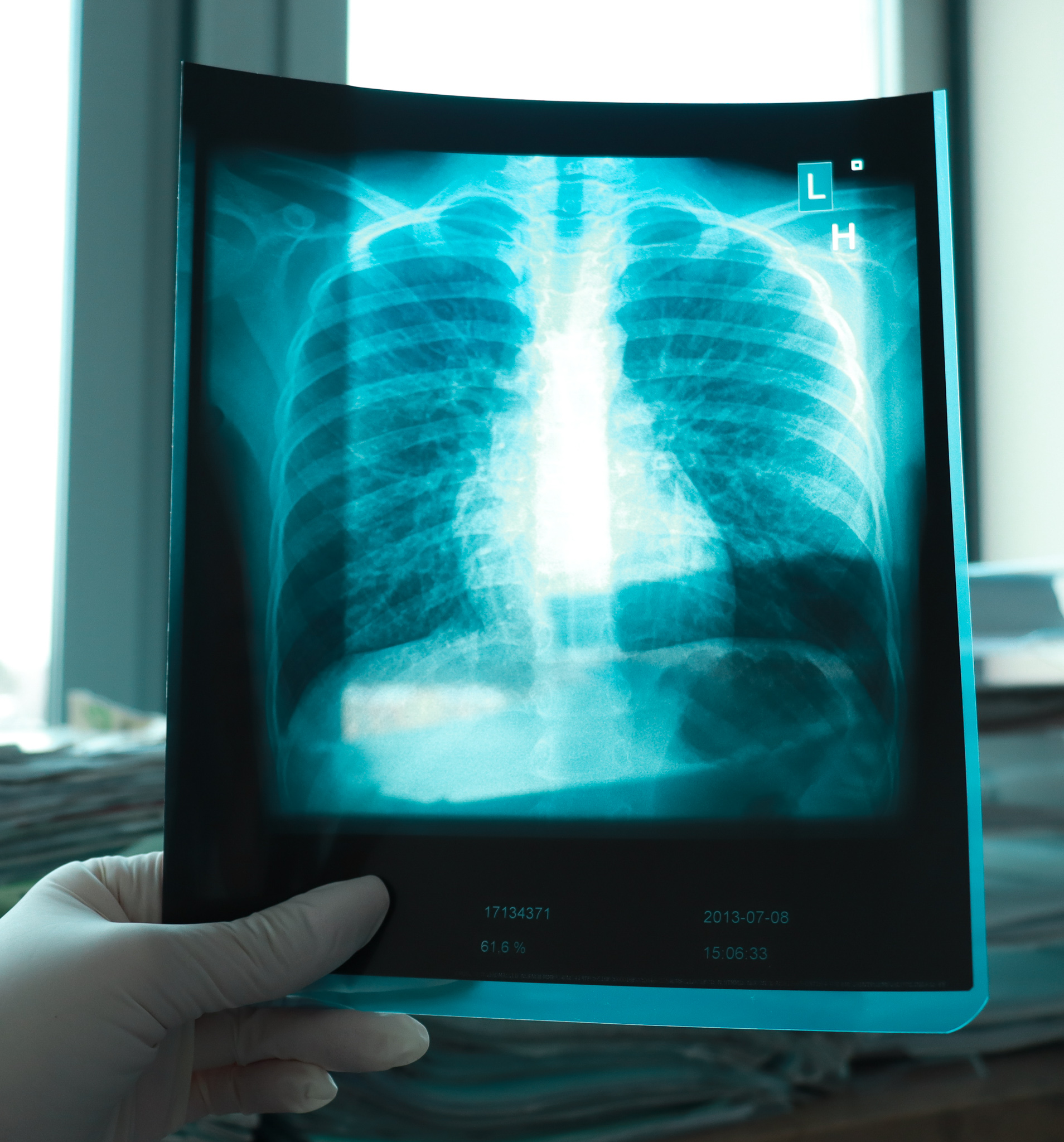Physiotherapy makes it possible to carry out the treatment of conditions that attack the human body’s ability to move. It is a rather broad specialty, within which there are different fields and specializations. On this occasion, we will talk about physical therapy in the respiratory field.
Respiratory physiotherapy has been in high demand in the last two years after the arrival of the global pandemic by Covid-19. However, this activity is also recommended for other types of diseases since, without a doubt, this branch of physiotherapy brings with it a large number of health benefits for patients with respiratory problems and pathologies.
What is respiratory physiotherapy about?
Respiratory physiotherapy is a branch of physiotherapy based on a group of techniques designed for the treatment of respiratory diseases. This type of process is carried out based on in-depth knowledge of the respiratory system.
Its purpose is none other than to increase the lung capacities of the different patients treated, since in most cases, they have had previous diseases that affect the normal functioning of the lungs.
The treatment applied is exclusively related to the individual needs of each patient.
In simple words, this means that the type of respiratory physiotherapy performed depends on the clinical status of the patient. In addition, the type of disease that it presents, its age and the level of collaboration of the patient before the treatment are previously taken into consideration.
At Clínica Eupnea, an expert in Pulmonology will be in charge of carrying out a preliminary examination together with the Respiratory Physiotherapist to clarify the best treatment for the patient.
With all this, the specialist proceeds with the respiratory physiotherapy treatment through manual movements or using specific devices. This medical activity allows certain respiratory obstructions to be eliminated and favors the pulmonary ventilation of patients.
What is the usefulness of respiratory physiotherapy?
Respiratory physiotherapy has two important uses:
In the first instance, these techniques are used to purge the respiratory system of the secretions that accumulate. For example, compression in the chest area helps treat diseases such as pneumonia.
Undoubtedly, this branch of physiotherapy can be of great help for those who have problems expelling secretions lodged in the lungs. However, it is useful for other clinical scenarios such as in the treatment of chronic lung diseases. In the next section some examples of these diseases will be given.
Secondly, this type of physiotherapy contributes to the improvement of gas exchange and improves blood oxygenation. This can be achieved simply with breathing exercises and other manual methods that help muscle movement.
Respiratory physiotherapy can also be a great recovery tool in postoperative cardiac or bypass cases. The opening of the chest that is performed for this type of surgical procedure predisposes the patient to the development of respiratory problems in the future, which can be avoided thanks to respiratory physiotherapy.

What types of diseases can be treated with respiratory physiotherapy?
Respiratory physiotherapy is perfectly applicable to any type of patient. In this sense, there is no established age limit and the respiratory disease that you may suffer does not have an impact. This branch of physiotherapy can treat a large number of pathologies such as:
- Cystic fibrosis.
- Asthma.
- COPD.
- Atelectasis.
- Bronchitis.
- Pulmonary emphysema.
- Pneumonia.
It is important to highlight that respiratory physiotherapy is not only indicated to treat these diseases, but is ideal for anyone who needs to increase their lung capacity. For example, athletes can resort to respiratory physiotherapy without any problem. In addition, at Clínica Eupnea we also offer pulmonology assistance so that the study of the patient’s health is as complete as possible.
On the other hand, it is very useful in the treatment of patients with neuromuscular problems. In addition, it is recommended in the recovery process after undergoing thoracoabdominal surgery.
What techniques are used in respiratory physiotherapy?
As we mentioned before, respiratory physiotherapy focuses on improving the lung capacity of patients. To achieve this, in each case various techniques are used.
It is necessary to keep in mind that each of these processes must be carried out by a physiotherapist specialized in the subject. This method has the quality of being able to eliminate the secretions that are present in the respiratory tract.
The most interesting thing is that the patient himself removes these secretions naturally. Some of the techniques used in this physiotherapeutic treatment are:
- Postural drainage: It is about helping the patient to eliminate secretions in the respiratory tract through the posture of his body.
- Percussion and vibrations: Through the application of small blows on the chest, it contributes to the mechanical elimination of secretions.
- Directed cough: This process consists of helping the patient so that he can use the cough correctly in order to discard the secretions located in the respiratory system.
- Breathing exercises: Using breathing as a means of improving lung capacity.
What are the breathing exercises of respiratory physiotherapy?

Respiratory physiotherapy breathing exercises are performed to expand the patient’s chest capacity. The process basically consists of educating the patient so that they relax and increase their lung capacity. Some of the most common exercises are:
- Diaphragmatic breathing: It consists of slow breaths in which you inhale through the nose and slowly exhale through the mouth. This exercise is quite common even in people who are dedicated to singing or speaking to have a better vocal placement and breath control.
- Chest expansion: In this process, prolonged inspirations are performed with a short apnea and slow expiration.
- Chest compression: In this case, pressure is applied to the chest area so that the muscles located in this area are exercised.
- Forced expiration: This exercise is a combination of diaphragmatic breathing with chest expansion and forced expiration exercises.
This type of exercise should under no circumstances cause pain to the patient. They are minimally invasive and mild processes carried out by professionals in the field.
In fact, it is advisable to resort to a respiratory physiotherapy session frequently. However, the rhythm of sessions is set by the expert. To determine this, it is important to take into account the clinical picture of the patient.
How long does a respiratory physiotherapy session last?
Each patient is treated individually according to their health status. However, in most cases, a chest physiotherapy session does not last more than 45 minutes. The duration depends on the pathology and the conditions in which the patient attends. An expert in Respiratory Physiotherapy together with a Pulmonologist will assess the patient beforehand and agree on the best therapy for the patient.
In the same way, the number of sessions that are carried out varies depending on each particular case. It is possible to perform these exercises for a period of 20 to 30 days. To culminate with the sessions, the evolution shown by the patient is taken into account.
On some occasions, the patient may also need to do some exercises at home. To do this, the specialist indicates the necessary devices and instruments.
In which cases is respiratory physiotherapy not recommended?
Despite the large number of benefits that respiratory physiotherapy implies, it is important to bear in mind that it cannot be used for all types of pathologies.
There are certain contraindications in clinical conditions such as hemoptysis, pneumothorax, hemodynamic instability, severe osteoporosis and severe cognitive impairment. In the case of suffering from any of these diseases, it is recommended to consult a specialist doctor to avoid health complications when carrying out the treatment.
What is child respiratory physiotherapy?
Respiratory physiotherapy also has a child application. Both children and babies may undergo chest physiotherapy sessions to improve the respiratory system. However, it is vitally important to consult the pediatrician beforehand.
The application of this branch of physiotherapy, in children’s terms, must be carried out in the treatment of conditions such as:
- Asthma.
- Cystic fibrosis.
- Ciliary immobility syndrome.
- Bacterial bronchitis.
However, there are some medical conditions in which some experts suggest avoiding its use as it may be unwise for children. For example, in case of pneumonia and bronchiolitis in the second phase. For this reason, you should always first consult a specialist in Pulmonology.
Physiotherapy treatment in post Covid-19 patients

If you are a patient recovered from Covid-19 and need pulmonary rehabilitation due to the consequences of this disease, you can resort to respiratory physiotherapy.
It is an ideal method to release pulmonary secretions and to regain respiratory control after illness. Without a doubt, it is perfect to have a greater lung capacity in this type of case.
Contact our experts at Clínica Eupnea for more information and to carry out a meticulous study of your case.
